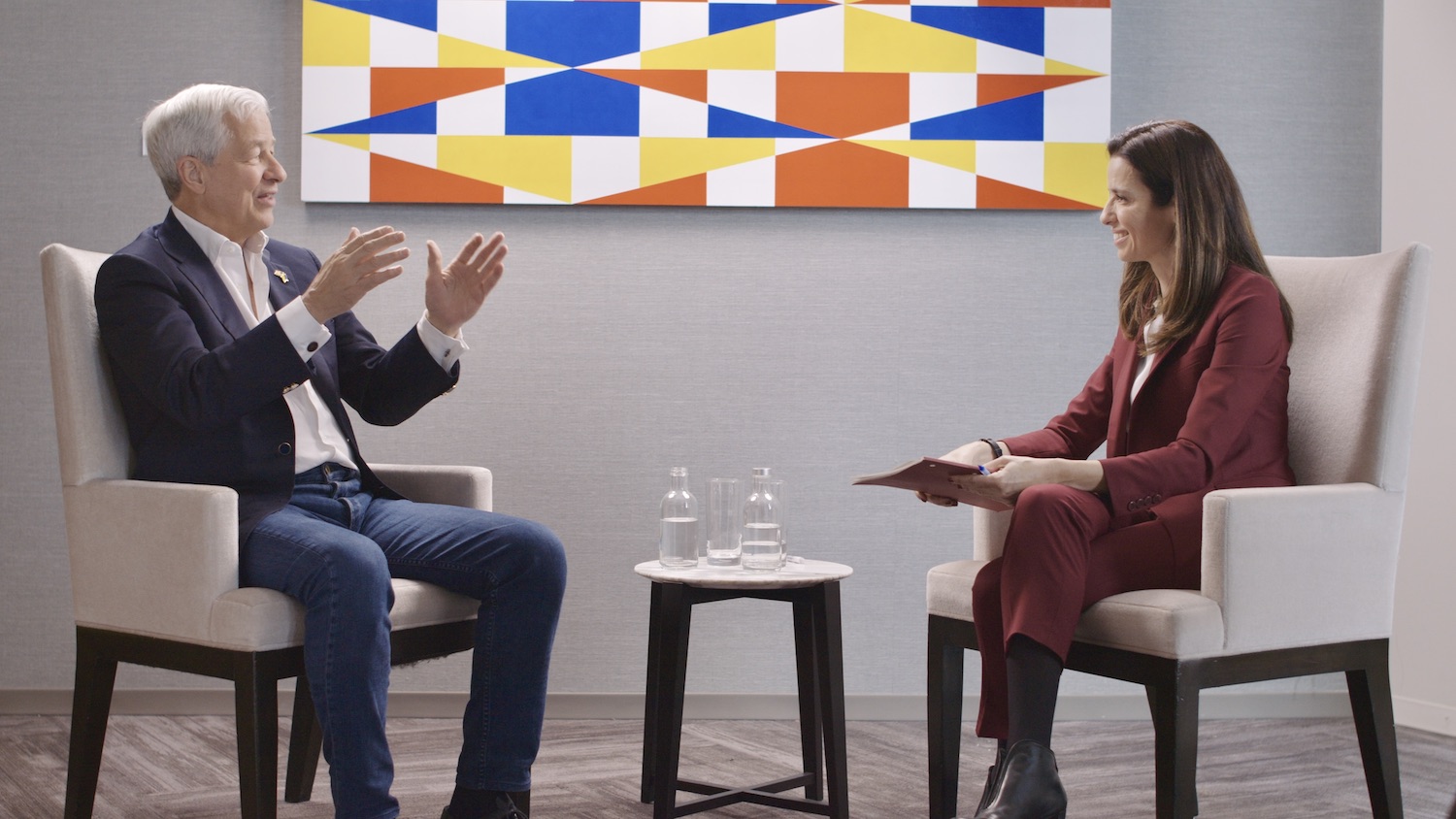The deal was agreed upon the night before. The next day, JPMorgan CEO, Jamie Dimon, received IESE at the headquarters on Madison Avenue.
Very close to that location, on the IESE Campus in Midtown Manhattan, we were on a week-long teaching Fintech & Asset Management to our GEMBA participants. I had the opportunity to record the conversation with Jamie Dimon for the Banking meeting.
It is a pleasure to share the main insights.
On First Republic Bank …
JD: “It had to make sense to the shareholder. So, it wasn’t just a gift. We had to make at least minimal sense. And it does because we earn more money. We can handle it. We’re going to hedge all the exposures. We’re writing everything in the market. So, it’s very clean the way we have it. We have some losses, reserve benefits, etcetera. And obviously, I think it’s very good for the American system.”
For a stable banking system, we need an effective regulatory framework that minimizes risks that banks individually may not cover sufficiently, and, at the same time, you need a few players strong enough to act and absorb failing banks, operating as a firewall.
This crisis made apparent that we cannot allow banks to fail without systemic consequences for the banking system, which was the objective of the many regulatory efforts: allowing banks to fail without a bailout.
On regulation…
JD: “I’m worried about cyber pandemics. War depression. Yeah, I’m not worried about the C car test, but that’s what all my people are doing. And so, the better way to handle risk is to first have a real conversation about what those things are. What should your people focus in the here-and-now? What is test based? What is just common sense? What are the rules we put in place to stop something from happening? It’s like the resolution recovery test. Those were even taken off the shelf for Silicon Valley Bank. They weren’t used.”
Regulation is complex. And this complexity may hinder a wider view on REAL risks that focus on the here and now. As managers & board members, we have a responsibility to do that, examining real risks. Rather than be eased by “Compliance conformism” or fatigue.
Dimon foresees’ changes in regulation, though he warns they should be clear about what they want to accomplish. A few first-order candidates:
– We might see a change in the rules in some stress tests so that they expand the interest rate scenario.
– Might, consider raising deposit insurance, funded by higher fees – after the controversial decision by the FDIC to cover uninsured deposits… it may reduce run, but does not resolve the moral hazard: the benefit that you get is higher than the fees…
– Examine if recovery resolution plans are useful at all!
On inflation…
JD: “We had more fiscal spending than the world has ever seen, in the shortest time the world’s ever seen it. So and that’s still in the system. You had huge QE and those are gone. So you might have the 5 or 10 year rates ticking up. So again, I think that might go to four and a half, five, 6%. People should be prepared for that. Just don’t take it off the risk because it hasn’t happened in 15 years.”
Banks should be prepared to examine the impact of high rates up to 6%, a scenario that we have not seen in the past 15 years. There are a set of inflationary effects in play: enormous amounts of fiscal spending, government borrowing, and lack of trading with nations with cheaper labor, the deflationary effect of China is over… and as well an important element is the impact of QE.
On Big Techs…
JD: “I consider us guardians of a stable financial system — I’m proud of that”
In this world of heterogeneous players, Dimon claims that banks are the guardians of the financial system: providing checks on AML, KYC, and implementation of sanctions… that ensure one of the essential pillar that is TRUST. In fact, we have seen that Neobanks have struggled on this front… AML and KYC forcing the slowdown of their growth paths for N26 in Europe for example.
On his legacy…
JD: “I want to leave the company behind a lot better than I found it. You know, my country, my family are more important to me than the company. So just making the world a better place right here. And you contribute the way you can. You as a professor and me as a CEO. And if someone could be a doctor or nurse or, you know, a janitor, they would make the world a better place. I’ve always seen these terrific stories about people talking about who made them better or the world better. And it can be anybody who just has that heart and that gratitude and that compassion.”




